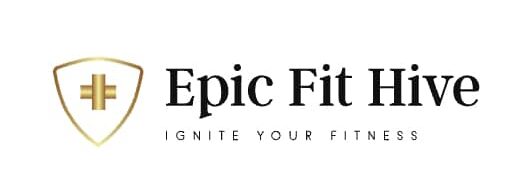Maintaining a healthy pregnancy diet is one of the best ways to support your baby’s growth and your own health throughout pregnancy. Eating the right foods can help prevent complications, ease pregnancy symptoms, and give you the energy you need. This guide will provide essential tips for creating a balanced pregnancy diet, common nutritional challenges, and simple solutions to help you thrive during this special time.
Why a Healthy Pregnancy Diet is Important
During pregnancy, your nutritional needs increase to support your baby’s development. A balanced diet helps in:
- Providing essential nutrients: Your baby relies on you for vitamins, minerals, and other nutrients for healthy growth.
- Maintaining your energy levels: A well-rounded diet helps you manage fatigue and other pregnancy symptoms.
- Reducing complications: Proper nutrition can lower the risk of pregnancy complications such as gestational diabetes and high blood pressure.
Key Nutrients for a Healthy Pregnancy Diet
1. Folic Acid
- Importance: Folic acid is essential for fetal brain and spinal cord development, especially in the early weeks of pregnancy.
- Problem: Getting enough folic acid can be challenging if your diet lacks leafy greens or fortified grains.
- Solution: Incorporate foods rich in folic acid, such as spinach, broccoli, lentils, and fortified cereals. Many prenatal vitamins also contain folic acid.
2. Iron
- Importance: Iron is crucial for producing red blood cells, which carry oxygen to your baby.
- Problem: Iron deficiency can lead to anemia, which causes fatigue and other complications.
- Solution: Include iron-rich foods like lean meats, beans, spinach, and iron-fortified cereals. Pair iron sources with vitamin C (like oranges or strawberries) to improve absorption.
3. Calcium
- Importance: Calcium supports the development of your baby’s bones and teeth.
- Problem: Lactose intolerance or dietary restrictions may make it challenging to consume enough calcium.
- Solution: Choose calcium-rich foods like dairy products, fortified plant-based milks, almonds, and leafy greens. If needed, consult your doctor about calcium supplements.
4. Protein
- Importance: Protein is vital for your baby’s growth and supports the development of tissues and organs.
- Problem: Morning sickness or food aversions can make it hard to consume enough protein.
- Solution: Opt for high-protein snacks like yogurt, nuts, cheese, and boiled eggs. Small, frequent meals can also help if you’re dealing with nausea.
5. Omega-3 Fatty Acids
- Importance: Omega-3s support fetal brain and eye development.
- Problem: Fish, a primary source of omega-3s, is sometimes limited during pregnancy due to concerns about mercury.
- Solution: Choose low-mercury fish like salmon and sardines. Flaxseeds, chia seeds, and walnuts are also good plant-based sources.
Common Challenges in Maintaining a Healthy Pregnancy Diet
1. Cravings and Food Aversions
- Challenge: Hormonal changes can cause strong cravings or aversions that make it difficult to stick to a balanced diet.
- Solution: Balance cravings by choosing healthier versions of your cravings when possible. If you have aversions, find alternative foods that offer similar nutrients.
2. Nausea and Morning Sickness
- Challenge: Nausea can make it difficult to eat regularly or consume nutritious foods.
- Solution: Eat small, frequent meals to keep your stomach settled. Ginger tea, plain crackers, and bland foods can help ease nausea.
3. Busy Schedules and Meal Planning
- Challenge: Finding time to prepare balanced meals can be difficult, especially for busy moms-to-be.
- Solution: Plan meals ahead, focusing on quick, nutritious options. Prepare healthy snacks in advance, like yogurt cups, veggie sticks, or trail mix.
Sample Pregnancy Meal Plan
Breakfast
- Oatmeal with chia seeds, berries, and a spoonful of almond butter (rich in fiber, protein, and omega-3s).
Mid-Morning Snack
- Greek yogurt with a handful of nuts or seeds for added calcium and protein.
Lunch
- Grilled chicken salad with leafy greens, cherry tomatoes, avocado, and a sprinkle of seeds (a source of folic acid, iron, and healthy fats).
Afternoon Snack
- Apple slices with peanut butter for fiber and protein.
Dinner
- Salmon with steamed broccoli and quinoa for protein, omega-3s, and iron.
Evening Snack
- Fortified cereal with milk for an extra boost of calcium and iron.
Final Thoughts
Maintaining a healthy pregnancy diet doesn’t have to be complicated. By focusing on nutrient-rich foods and listening to your body’s needs, you can support your own health and your baby’s development. Remember to consult with your healthcare provider for personalized dietary recommendations.
Bonus Tip: Stay hydrated! Drinking plenty of water aids digestion, helps prevent constipation, and keeps you energized.
A well-rounded pregnancy diet helps both you and your baby thrive. Use these tips and strategies to stay on track, nourish yourself, and enjoy this remarkable journey to motherhood.
